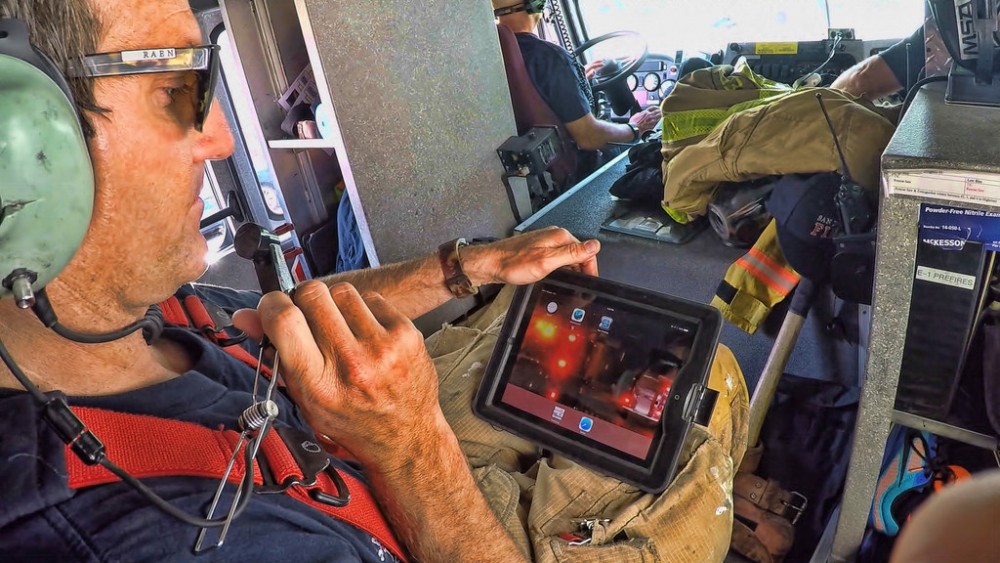
Build out of the nation’s first wireless high-speed communications system aimed at connecting all of America’s first responders via a dedicated broadband network will begin this fall, says AT&T, the new primary contractor in a federal government contract valued at $46.5 billion.
The nationwide dedicated network the telecom giant has been chosen to build and manage “will be second to none,” AT&T Chairman and CEO Randall Stephenson said during a press conference on Thursday in Washington, D.C., adding that the multibillion-dollar, public-private investment in infrastructure “makes public safety a national priority.”
First Responder Network Authority, an independent authority within the U.S. Commerce Department’s National Telecommunications and Information Administration created to oversee the FirstNet project, officially signed the agreement this morning with AT&T to construct the communications infrastructure that public safety needs for day-to-day operations, disaster response and recovery, and securing of large events. AT&T also gets access to 20 MHz of prime broadband spectrum for commercial development.
“This mission-critical broadband network is virtually unprecedented in public safety,” said Jeffrey Johnson, vice chairman of FirstNet.
The ability to communicate seamlessly across jurisdictions will be indispensable for law enforcement, fire and emergency medical services, said Johnson, a retired fire chief and CEO of the Western Fire Chiefs Association. In such instances, networks may become overloaded and inaccessible, limiting responders’ use of communication technologies, such as smartphones and service applications.
The 25-year deal ensures that such situations “no longer will happen,” said TJ Kennedy, president of FirstNet. And the new network will give first responders across all layers of public safety the ability to share voice communications, video and pictures, for example, and improve situational awareness, he said.
“All agencies will be able to share mission-critical information,” said Kennedy, adding that the network will be sustainable, regularly upgraded and maintained. “It will change the way public safety will respond forever because first responders will have the tools and technology they need to respond the way you need them to respond,” Kennedy said during the press conference.
Long in the works
The deal has been a long time coming. A dedicated public safety broadband network was a recommendation of the National Commission on Terrorist Attacks Upon the U.S., also known as the 9-11 Commission, following the Sept. 11, 2001 terrorist attacks. It is the last recommendation that has yet to be fulfilled.
“When terrorism struck our shores, our nation was stuck in shock as the vulnerabilities and gaps in our security were exposed,” said U.S. Secretary of Commerce Wilbur Ross during the press conference.
With the formation of FirstNet, the task taken was to build a more secure society that shields its citizens, Ross said.
“We will change an untenable status quo by providing first responders with the tools they need to keep us safe,” the secretary said, adding that the new network will end the massive communications jams that currently occur when first responders, who rely on thousands of separate, incompatible systems, try to communicate with one another during an emergency.
The new network will enable them to pass along vital and life-saving information to each other on one network in real time, Ross said.
Business notes
The FirstNet project is expected to create 10,000 jobs over two years. The network will cover all 50 states, five U.S. territories and the District of Columbia, including rural communities and tribal lands in all states and territories.
The Federal Communication Commission (FCC), which auctioned off spectrum to help fund FirstNet, remains on board with the project, said FCC Chairman Ajit Pai during the press conference.
“The journey may not be over yet, but this is a major milestone,” said Pai, named to his post by President Donald Trump in January.
Pai advocates a soft federal government approach to broadband regulation, a stance also supported by AT&T. In addition to being a saving grace for first responders, the FirstNet project also might be part of a public-private move toward installing next generation 5G networks.
FirstNet was created by the Middle Class Tax Relief and Job Creation Act of 2012 specifically to provide a nationwide, high-speed, broadband network dedicated to public safety. Congress thus far has set aside $6.5 billion over five years for the contract winner. AT&T now will design and build out the vast network and add towers and antennas.
Stephenson said AT&T expects to spend roughly $40 billion over the life of the deal to build, deploy, operate and maintain the public safety network.




